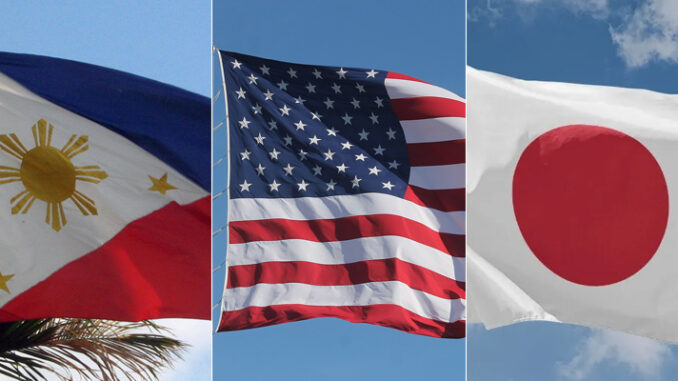
The Philippines, United States, and Japan launched the Luzon Economic Corridor, the first Partnership for Global Infrastructure and Investment (PGII) corridor in the Indo-Pacific, during their inaugural trilateral summit on Friday.
As the three nations aim to strengthen cooperation and foster economic resilience, the Luzon Economic Corridor serves as a platform for enhanced collaboration, focusing on delivering tangible investments across multiple sectors.
“Through this corridor, part of the PGII-IPEF Accelerator, Japan, the Philippines, and the United States commit to accelerating coordinated investments in high-impact infrastructure projects, including rail; ports modernization; clean energy and semiconductor supply chains and deployments; agribusiness; and civilian port upgrades at Subic Bay,” their joint statement read.
During the summit, the three leaders emphasized the importance of enabling “future commercial deployment and an open, interoperable, secure, reliable, and trusted information communications technology ecosystem in the Philippines.” In line with this goal, Japan committed $8 million for Open Radio Access Network (RAN) field trials and for the Asia Open RAN Academy, to be based in Manila.
The summit also addressed climate change, with the three countries agreeing to provide capacity-building mechanisms and expand partnerships for safe and secure civil-nuclear capacity-building. Discussions on the South China Sea and East China Sea likewise reaffirmed the countries’ shared commitment to maintaining peace and security, consistent with international law.
“Within the next year, our coast guards also plan to conduct an at-sea trilateral exercise and other maritime activities in the Indo-Pacific to improve interoperability and advance maritime security and safety. We announce the establishment of a trilateral maritime dialogue to enhance coordination and collective responses to promote maritime cooperation,” the statement said.
“We represent proud, resilient democracies, mindful of our respective challenges but determined to overcome them, and we remain committed to safeguarding the human rights, media freedom, and labor rights of our people. These democratic values form the very foundation of our bilateral relationships and this trilateral partnership,” it concluded.


Be the first to comment